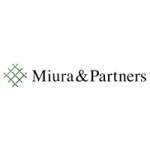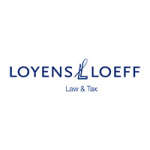Avraham Well and Ronald Lehmann of FISCHER (FBC & Co) on how the Israeli M&A market functions
Although Israel’s population is less than ten million, Israel’s economy is one of the strongest in the OECD. According to Israel’s Central Bureau of Statistics, Israel’s economy grew by 6.5% in 2022 compared to 2021. This figure places Israel’s annual growth rate among leading developed countries. Despite the country’s small size, Israeli companies have a large representation on US stock exchanges. Israel’s robust economy, with its renowned hi-tech sector, has created exceptional opportunities for foreign investments. We set out below a number of structural highlights and distinguishing features of the Israeli M&A environment:
Structure of the Israeli M&A market
In general, three principal types of Israeli companies are potential targets for investments and acquisitions: first, private companies, often in the hi-tech sector; second, public companies listed on the Tel Aviv Stock Exchange (TASE); and third, public companies listed on exchanges outside Israel, mainly the US, which often are the ‘marquee’ companies of the Israeli hi-tech ecosystem.
From a bird’s-eye perspective, a notable distinction between many Israeli and US or UK-based public companies is that companies traded on the TASE tend to have a dominant shareholder (the ‘controlling shareholder’) who retains the ability to direct the company, despite the public ‘float’ of its shares. By contrast, companies traded on other exchanges tend to have more decentralised holding structures. A second distinguishing feature is that Israeli companies listed on non-Israeli exchanges remain subject to Israeli corporate law, while the issuance and trading of their securities, as well as their ongoing reporting (and, in some cases, governance) requirements, will be subject to applicable foreign law.
Acquisition methods in Israel
M&A transactions involving Israeli private companies typically are effected through a share purchase agreement signed (or ‘joined’) by all shareholders, although Israeli law and many company articles of association provide for a mechanism to ‘drag along’ minority shareholders. Most private M&A transactions in Israel are papered through US-style documentation and the leading language in the hi-tech sector is English.
In ‘going private’ M&A transactions in which the Israeli target is publicly traded, two acquisition tracks are generally available under Israeli corporate law. One is the full tender offer, although this method is used infrequently because the Israeli Companies Law requires holders of 95% of the shares in the target to accept the tender offer. The second track, used much more frequently, is the reverse triangular merger, which operates similarly in Israel to other jurisdictions, and in practice is generally effected by approval of the target company’s board and of a regular majority of its shareholders. Moreover, the standards established in Delaware case law regarding internal corporate approvals and procedures relevant to public company targets, such as the business judgement rule and its variations or the Revlon rule, are generally applicable under Israeli corporate law to Israeli target companies as well.
Notably, the development of the representations and warranties insurance market in Israel has made this insurance product an increasingly common aspect of Israeli M&A transactions, particularly with respect to private target companies.
The proposed judicial reform as a risk factor
After Israel’s last election in November 2022 a right-wing government was formed that is seeking to change the balance of powers among the Israeli Supreme Court, the government, and the legislature. Following the announcement of the proposed reforms a widespread protest movement has arisen in Israel, and some Israeli public companies have added this matter to their published ‘risk factors’. The outcome of the proposed reform and its impact on potential acquirers of Israeli targets is not yet clear.
Regulatory considerations
For most M&A transactions in Israel the principal regulatory requirement is obtaining the Israeli Competition Authority (ICA)’s approval. The threshold for requiring ICA approval is that the foreign investor has a pre-existing ‘nexus’ to Israel.
If the nexus threshold is satisfied, then the requirement to obtain ICA approval arises if (1) the transaction involves the acquisition of more than 25% of any ‘means of control’ in the target company, and (2) one of the following conditions is satisfied: one of the merging companies has a monopoly in Israel; as a result of the merger the merging companies’ market share in the relevant sector in Israel will exceed 50%; or the merging companies’ aggregate sales turnover is not less than NIS 360 million, and the sales turnover of each of the merging companies is at least NIS 20 million.
In addition, specific regulatory approval requirements apply in various sectors, such as banking, insurance, telecommunications, and energy and infrastructure. Acquisitions of targets in regulated industries may also require an affirmative recommendation of the Advisory Committee for Evaluating National Security Aspects of Foreign Investments (which can be seen as the Israeli equivalent of CFIUS). However, the acquisition of most Israeli industrial and hi-tech companies is not subject to sector-specific regulatory approvals.
Additionally, if the target company holds lands under long-term leases from the State of Israel (eg, a company whose factory is located on such land), as many Israeli industrial companies do, an M&A transaction also may require approval of the Israel Lands Authority.
Labour laws and workers’ organisations
Acquisitions and investments in Israel must also consider labour law issues. A share purchase or transfer of control transaction generally does not require the employees’ consent or give rise to a right to resign or receive compensation. However, if the target company’s employees are unionised, an M&A transaction is likely to involve collective bargaining with the union and as a practical matter may require payment of change of control bonuses to ensure labour peace at the target company.
Equity compensation is common in the hi-tech sector, and the treatment of option holders as well as retention structures are key elements of M&A transactions in this sector.
Grant programmes
Israel offers substantial benefits and concessions through a number of laws and regulations, especially with regard to hi-tech companies and research and development activities. Notably, the Israel Innovation Authority offers grants that must be repaid through royalties but are subject to restrictions on transfers of funded know-how and related manufacturing outside Israel;
the application of these restrictions is often a key aspect of M&A due diligence.
Authors

Avraham Well
Partner, head of corporate practice

Ronald Lehmann
Partner, corporate practice













